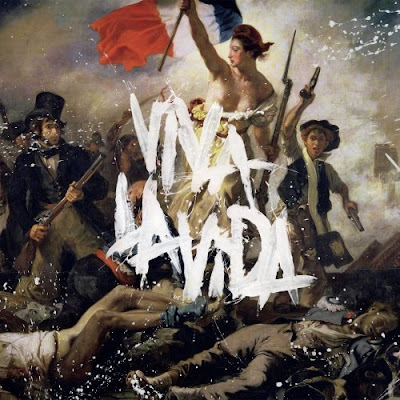
It took me around four chapters to really appreciate the writing of Zora Neale Hurston. In my opinion, her writing is more abstract than direct, which I praise but it takes me a long time to understand some lines. Her use of language is expressive and descriptive, hiding the meaning of her words at times.
One particular line that caught my attention was, "The icy sword of the square-toed one had cut off his breath and left his hands in a pose of agonizing protest" (87). The description in this line is absolutely stunning. I especially enjoy the personification Hurston uses, portraying Death as the "square-toed one". For some odd reason, describing Death as the "square-toed one" amuses me as well. I am unsure as to why Hurston associates square toes to Death, but my guess is that square-toes give the impression of nonhuman characteristics. When I think of square toes, I think of machines. Going along with my idea, machines have no heart which would explain the cruelty of Death Hurston wishes to illustrate. Also, when I read that line, I immediately related it to the song, Death and All His Friends, by Coldplay. The lyrics from that song do not exactly apply to the quote but it does cover the context of the quote. Right before Joe's death, Janie goes to talk to him. She tells him the truth that his health has failed him and he will die. "His eyes buckled in a vacant-mouthed terror and she saw the awful surprise in his face" (86). Clearly, Joe does not want to know that he will die and he is afraid of death. From my interpretation, the lyrics of the song also give the impression of being afraid of death and not wanting to die. The repeated line, "I don't want to follow death and all of his friends" help portray the impression. Also, another line in the song "...we dream of making our escape" shows the fear of death and unwillingness to die. This song is fitting for Joe as both the lyrics of the song and Joe express their reluctance to Death as both the "square toed one" and simply Death with all of his friends.
Another aspect of this line that I thought was clever of Hurston was the way she described Joe's last image - "his hands [were] in a pose of agonizing protest" (87). This phrase relays many characteristics of Joe. Joe was always a character that needed to justify himself until he was deemed correct. Between him and Janie, he would constantly undermine her accusations of his mistreatment towards her. Even up to his last minute of his life, he protested against Janie's accusations in denial. In addition, the word "agonizing" suggests that maybe Joe did regret treating Janie with inequality. Maybe Joe did realize that he was hurting Janie and making her suffer but still continued to retain the power over his wife. Just from those two words, Hurston revealed many possible as well as known characteristics of Joe.
Overall, the single line gives off the chilling feeling of death. Hurston beautifully crafts a line describing the death of Joe Starks all in one line while capturing the mood and feeling of the moment as well as encompassing his personality to be remembered at the time of his death.

I really like how you connected this with a song.
ReplyDeleteAlso, I was wondering when I read the book why Hurston capitalized the D in death?
Justine- Coldplay is literally Gods gift to man and I LOVE that song.
ReplyDeleteOk, as a side note you also made very relevant points to connect it to the book. Death is a very prevalent issue in the novel and each death allows characters to grow in the story and allows the reader to gain further insight into the true characters.
I also really liked how you analyzed the imagery of the "square-toed one" and how you thought it was like a heartless machine. I never thought of it that way, but I see what you mean. The "square toed one" reminded me of a monster.
ReplyDeleteI think Hurston capitalized the D in death because she is really personifying it in the novel, by describing it as a physical thing with "square toes".
I completely agree with what you said in your first paragraph! TWINS! It also reminds me of the song "Time is Running Out" by Muse, which you probably have heard. The story may be a stretch but I believe that when it relates death to a person, it can be applied to your point. The idea of running out of time and fearing death.
ReplyDelete